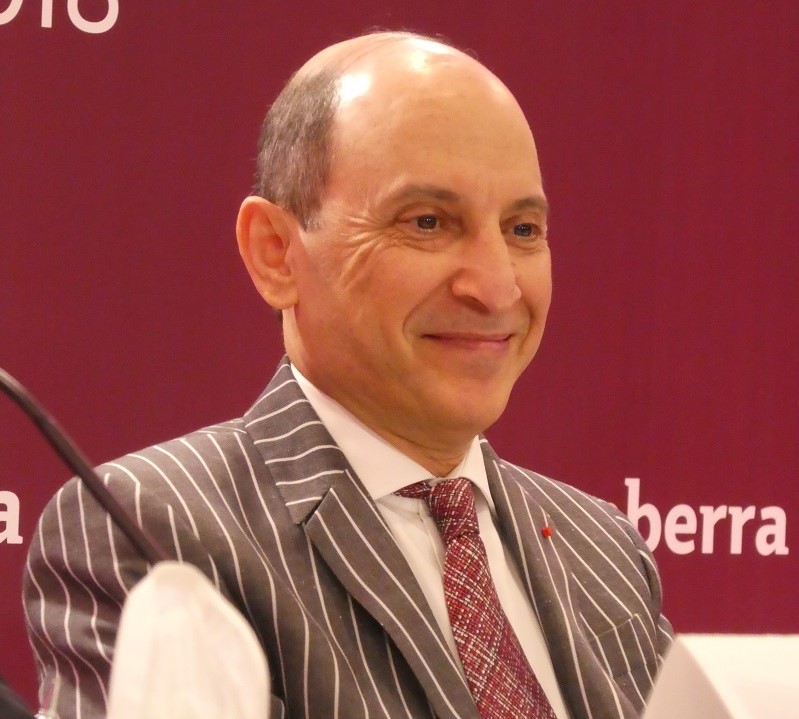Al Baker slams ICAO inaction on blockade
05 February, 2019
4 min read


Outspoken Qatar Airways chief executive Akbar Al Baker has slammed the UN-backed International Civil Aviation Organisation for failing to resolve the long-running blockade affecting his airline.
Describing the blockade as “a ruthless campaign of isolation”, Al Baker said airspace restrictions imposed by the blockade in June 2017 meant Qatar registered aircraft could no longer overfly the airspace of the participating countries or to operate from or to any of their airports.
Additional approval processes were also imposed by the blockade states — The UAE, Saudi Arabia, Bahrain and Egypt — on other international airlines flying to or from Qatar.
This was a serious violation of international law, he said.
“Third and most importantly, Qatar registered aircraft were denied access to international airspace over high seas,’’ he told the CAPA Qatar Aviation, Aeropolitical and Regulatory Summit in Doha on Tuesday. “These directives, issued by the blockade states, were highly disruptive to Qatar Airways operations on the ground and in the air.”
Al Baker said that prior to the blockade, Qantar Airways had access to 18 entry and exit points and had been operating almost 600 flights a day.
READ Qatar takes stake in China Southern in latest global play
He noted that on June 5, 2017, the number of air corridors was reduced from 18 to two and the number of flights fell to 444.
“With only two air corridors available to Qatar registered aircraft, elaborate measures were necessary to ensure safe operations,’’ he told delegates at the conference “If you were following the route map of your flight here, you may have noticed the diversions our aircraft are forced to take due to these illegal actions.”
The airline chief said the state of Qatar chose to respond to the blockade by appealing to ICAO “the UN body responsible for protecting the safety, security and efficiency of international civil aviation”.
“Unfortunately, until this day, (the) ICAO response has been rather timid and disappointing,’’ he said. “It is with great shame that ICAO has taken a back seat.”
Qatar was continuing to deal with the negative financial and operational consequences of the airspace blockade, Al Baker said.
He said the impact of the blockade had been minimized “if not already defeated” as the airline’s mix of widebody and narrowbody aircraft enabled it to launch new destinations and increase frequencies based on market demand “not on dumping capacity like a lot of people accuse us of”.
“Within the first year of the blockade alone we managed to launch 17 new destinations whilst also increasing frequencies to some of our existing destinations,’’ he said, adding that “not one employee was laid off, not a single aircraft was parked”.
“I am pleased to announce that since the first day of the blockade we have launched 24 new destinations. We are very proud of that."
“For many of these new destinations, Qatar Airways is the first major global carrier to operate to that city."
The Qatar boss took another shot at some of his oneworld alliance partners, accusing them of being actively engaged in "misinformation campaigns" aimed at blocking Qatar's access to certain markets and strategic investments in other carriers.
He also announced that the state of Qatar and the European Union had concluded negotiations for a comprehensive air transport agreement giving all air carriers from the EU’s 28 member states and Qatar unlimited access to their respective territories.
The deal involved Qatar and the EU agreeing to articles on fair competition, environment, consumer protection, social aspects, and transparency.
This included a "doing-business" provision which exempts EU carriers from the obligation to hire a local General Sales Agent in Qatar.
Key speakers at the conference included International Air Transport Association director general Alexandre de Juniac and European Commission director general mobility and transport Henrik Hololei.
Get the latest news and updates straight to your inbox
No spam, no hassle, no fuss, just airline news direct to you.
By joining our newsletter, you agree to our Privacy Policy
Find us on social media
Comments
No comments yet, be the first to write one.

